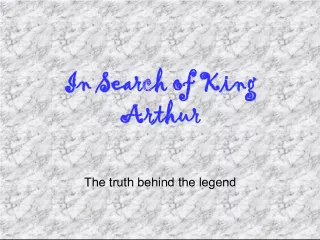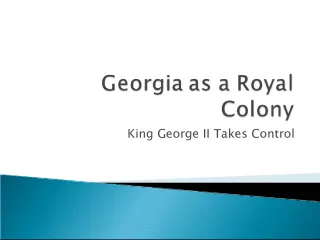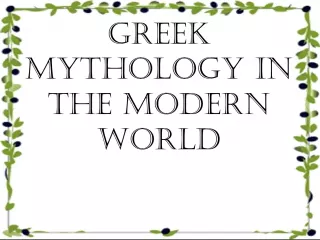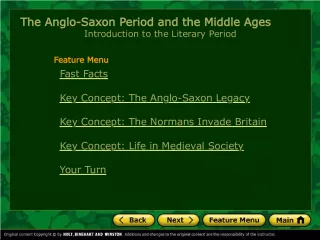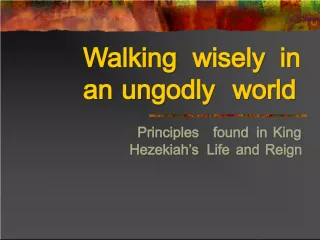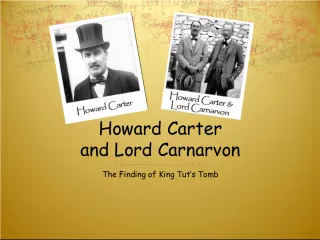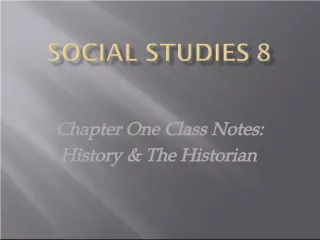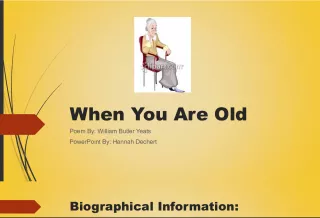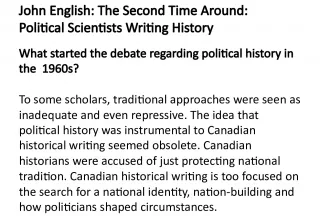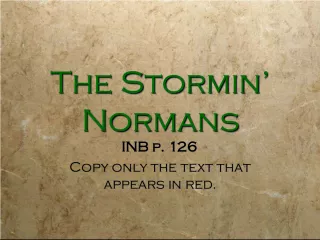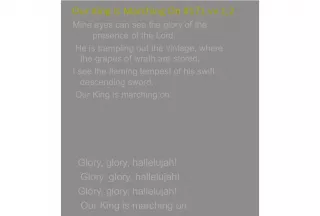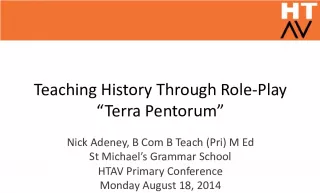Mythology and History of Royal Britain: From King Brut to Arthur
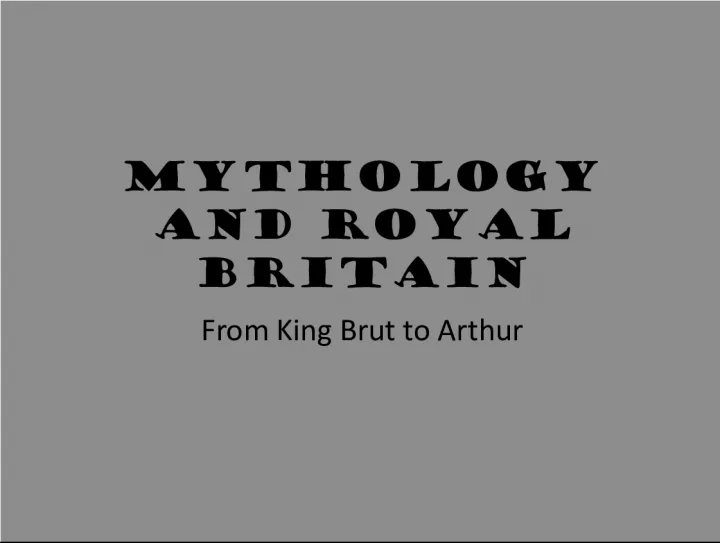

Explore the fascinating world of British mythology and history, from the legendary King Brut to the stories of King Arthur. Discover the impact of Romans on British society, including the creation of towns and cities, roads, and Christianity.
- Uploaded on | 1 Views
-
 ivalia
ivalia
About Mythology and History of Royal Britain: From King Brut to Arthur
PowerPoint presentation about 'Mythology and History of Royal Britain: From King Brut to Arthur'. This presentation describes the topic on Explore the fascinating world of British mythology and history, from the legendary King Brut to the stories of King Arthur. Discover the impact of Romans on British society, including the creation of towns and cities, roads, and Christianity.. The key topics included in this slideshow are British history, mythology, King Arthur, Romans, Christianity, Emperor Claudius, defensive walls, central heating, towns and cities,. Download this presentation absolutely free.
Presentation Transcript
1. Mythology and Royal Britain From King Brut to Arthur
2. British history traditionally begins in 55 B.C. with Julius Caesars first attempt to conquer the island. Emperor Claudius was more successful in 43 A.D. and within 35 years the Romans occupied all of what is now England and Wales.
3. Roman Legacy? Creation of towns and cities Roads, defensive walls, public baths Villas with central heating and indoor plumbing Christianity (brought by Roman soldiers in 2 nd /3 rd century)
4. Literacy was confined to Celtic clerics who fled to the remote corners of the island. The sole extant history of the Anglo-Saxon conquest is by Gildas Bandonicus, a British monk, who wrote his Ruin of Britain (De Excidio Britanniae) in the 540s. Much like St. Augustine of Hippo in City of God , Gildas saw the Germanic invasion as a punishment for the wickedness of humankind.
5. Gildas tells of a British king Vortigern inviting the fierce and impious Saxons, a race hateful both to God and men to help the Celts fight the Picts and the Scots who were taking advantage of the departure of Roman legions from Britain to plunder the South. Eventually, a larger company of her wolfish offspringjoin themselves to their bastard-born comrades. From that time the germ of iniquity and the root of contention planted their poison amongst us, as we deserved.
6. Gildas also mentions a Briton named Ambrosius Aurelianus, a modest man, who of all the Roman nation was then alone in the confusion of this troubled period by chance left alive. His parents, who for their merit were adorned with the purple, kind been slain in these same broils, and now his progeny in these our days, although shamefully degenerated from the worthiness of their ancestors, provoke to battle their cruel conquerors, and by the goodness of our Lord obtain the victory. [Gildas identifies the site of the British victory as Mons Badonicus or Mount Badon] Was this ARTHUR?
7. The Anglo-Saxons ultimately prevailed and settled down to farm their new lands. Celtic missionaries from the North and West and Roman Catholic missionaries from the South eventually converted the barbarians to Christianity. Literacy remained the province of the monks and consequently early histories of England focused on religious developments.
8. The Historia ecclesiastica gentis Anglorum or the Ecclesiastical History of the English People was written by the Venerable Bede (672/3 735), a priest at the monastery of Jarrow in northern England. Its theme is the Christianization of Britain, and covers the period from the Romans through St. Augustine in 597. There is no mention of Arthur.
9. Bede highlights Pope Gregorys role in English Christianity, especially his decision to send Augustine to Britain: I must here relate a story which shows Gregory's deep desire for the salvation of our nation. We are told that one day some merchants who had recently arrived in Rome displayed their many wares in the crowded market-place. Among other merchandise Gregory saw some boys exposed for sale. These had fair complexions, fine-cut features, and fair hair. Looking at them with interest, he enquired what country and race they came from. 'They come from Britain,' he was told, 'where all the people have this appearance.' He then asked whether the people were Christians, or whether they were still ignorant heathens. 'They are pagans,' he was informed. 'Alas!' said Gregory with a heartfelt sigh: 'how sad that such handsome folk are still in the grasp of the Author of darkness, and that faces of such beauty conceal minds ignorant of God's grace! What is the name of this race?' 'They are called Angles,' he was told. 'That is appropriate,' he said, 'for they have angelic faces, and it is right that they should become fellow-heirs with the angels in heaven.
10. Nennius , a Welsh monk who wrote around 800 A.D. incorporated a number of Celtic legends into his Historia Brittonum (History of the Britons). This is the first publication to mention Arthur by name. He identifies him as the British leader victorious against the Anglo- Saxons at the Battle of Mount Badon (His source was apparently Gildas).
11. Geoffrey of Monmouth (c. 1100 1155), embellished Gildas, Bede, and Nennius (and others) in his Historia Regum Britanniae (History of the Kings of Britain) and is the source of much of the Arthurian legend. Geoffrey traces the origin of Britain back to King Brut (a descendant of Aeneas)and his band of Trojans. He relates how the evil Vortigern brings the Saxons to the island as mercenaries. A Welsh prophet by the name of Merlin helps depose Vortigern and the noble Arthur comes to power. Arthur defeats the Saxons and marries Guinevere, initiating a "Golden Age" of peace and prosperity in Britain. He and his knights go on to conquer Gaul from the weakened Romans and holds court at Caerleon. Arthur is betrayed at home by his rebellious nephew Mordred and returns to Britain to restore order. Mortally wounded in the battle that ensues, he is buried on the Isle of Avalon. The Anglo-Saxons are subsequently victorious and the Britons retreat into Wales with Merlin predicting an eventual return to power of the Celts.
